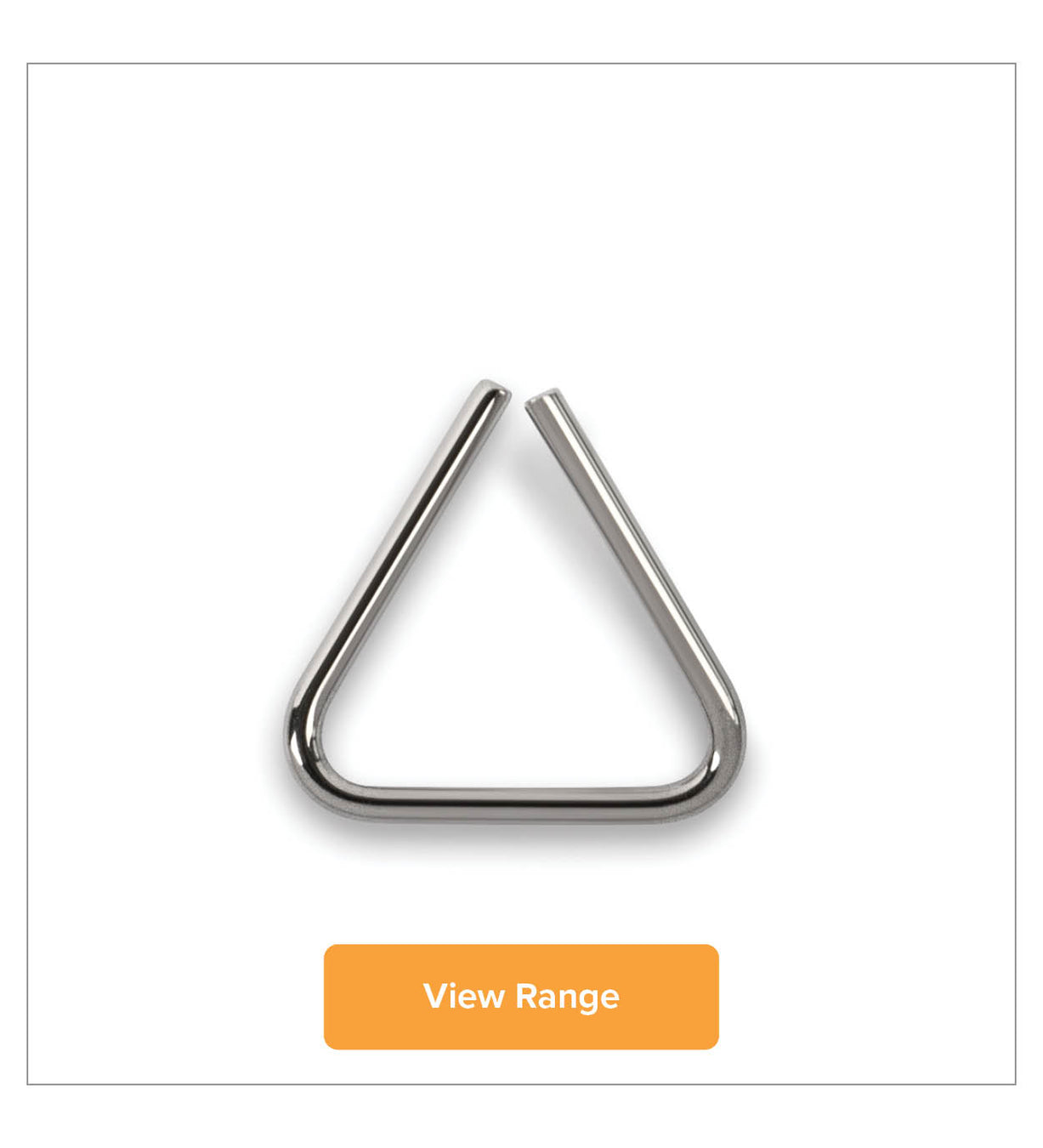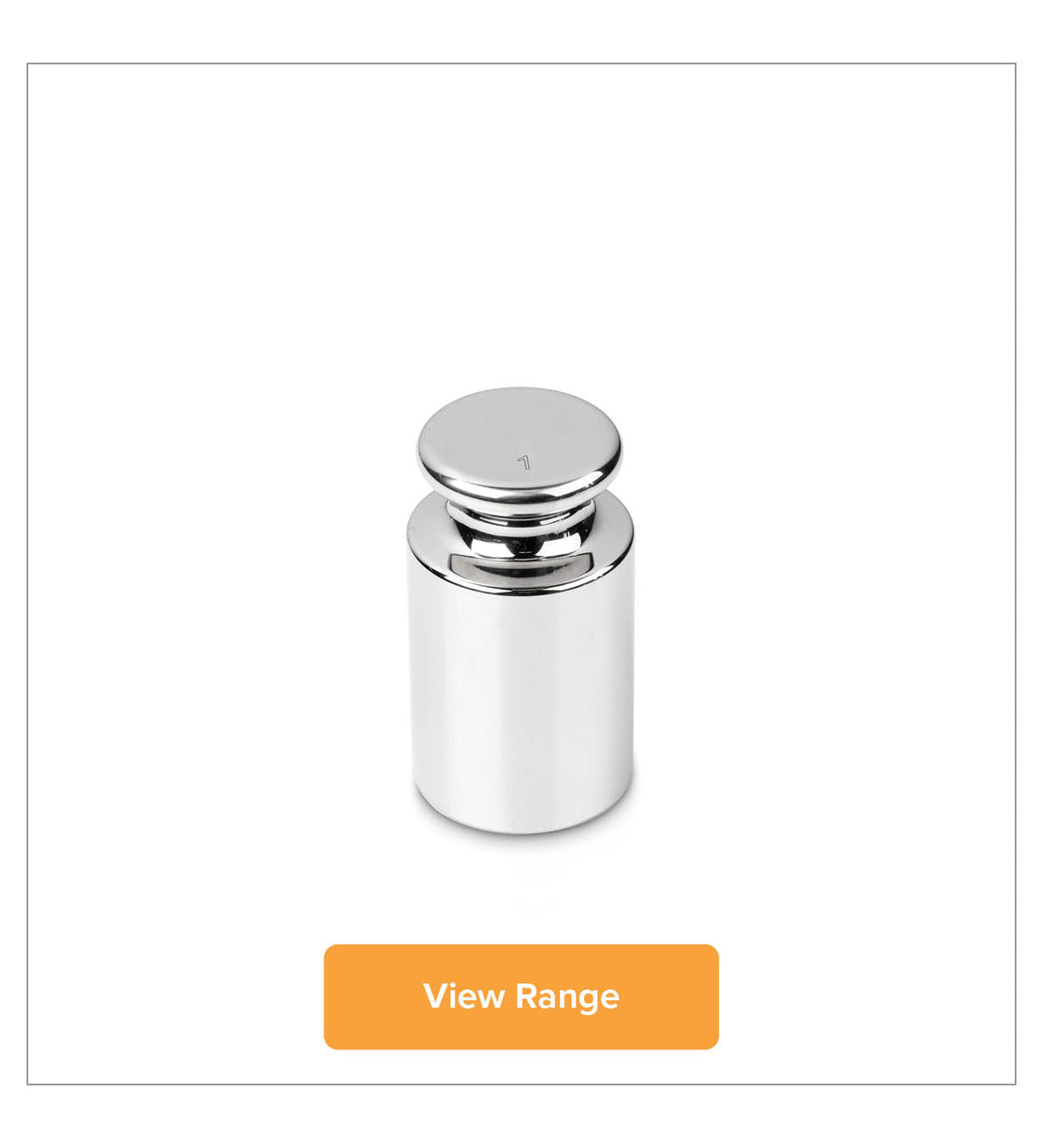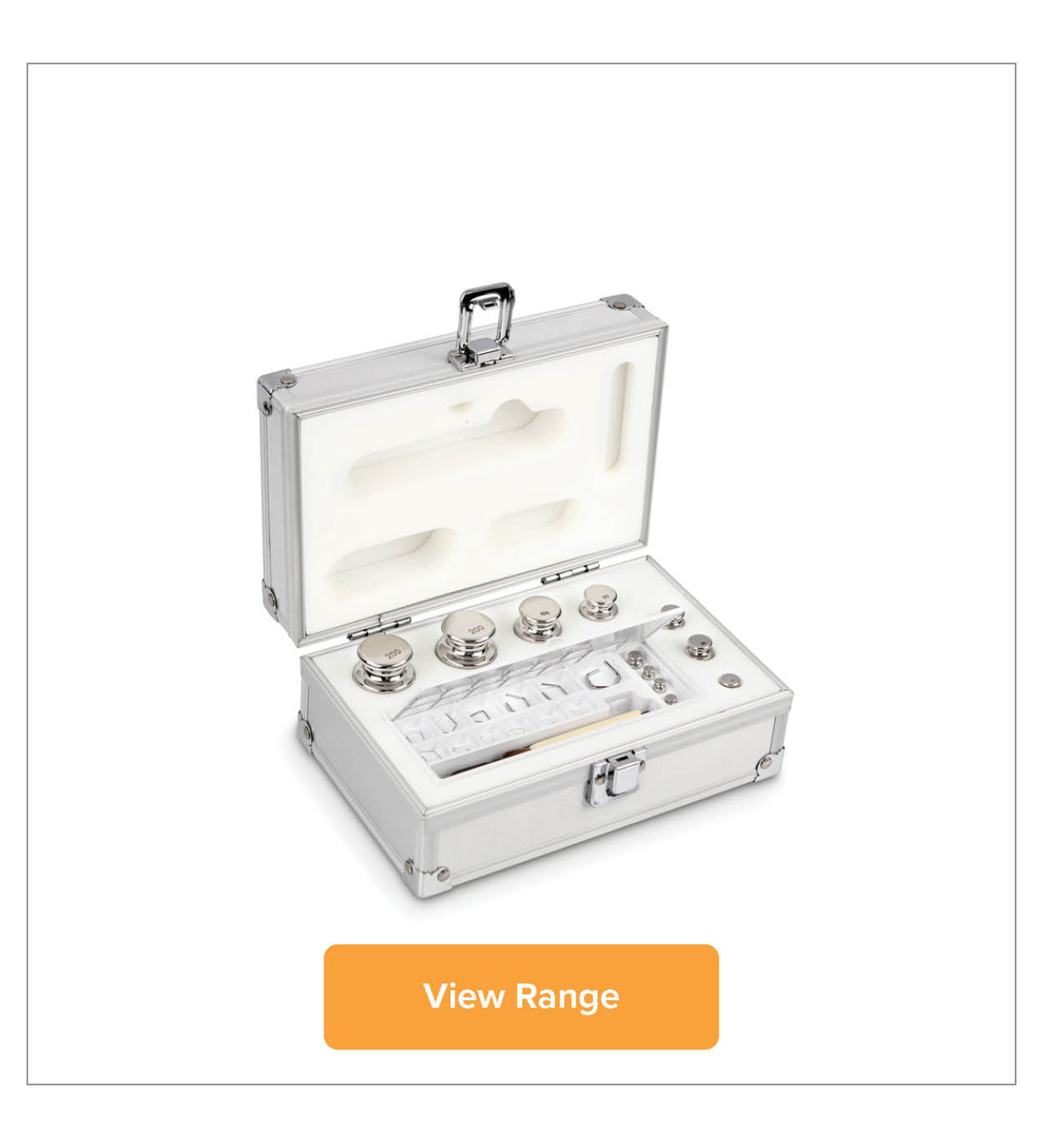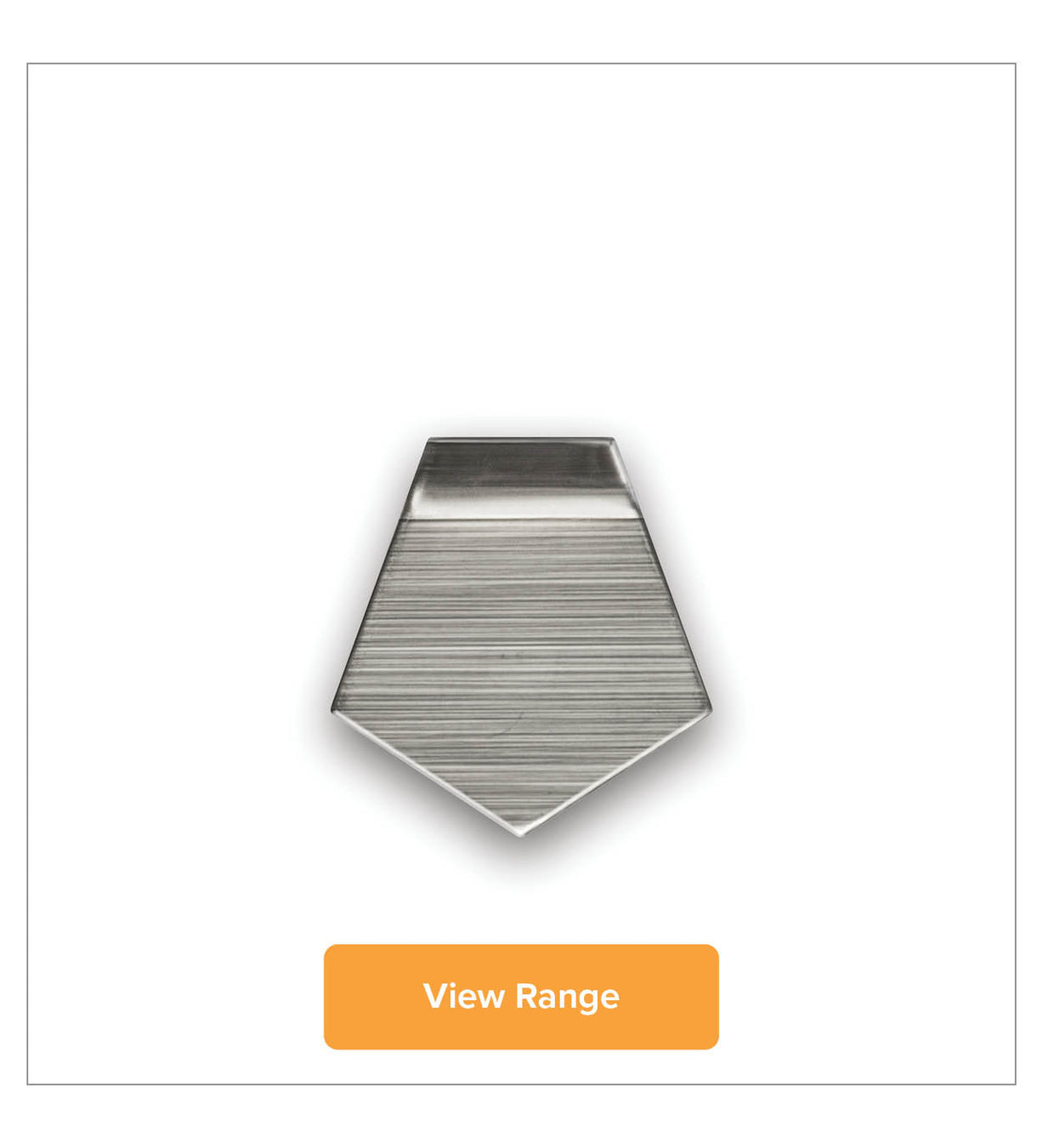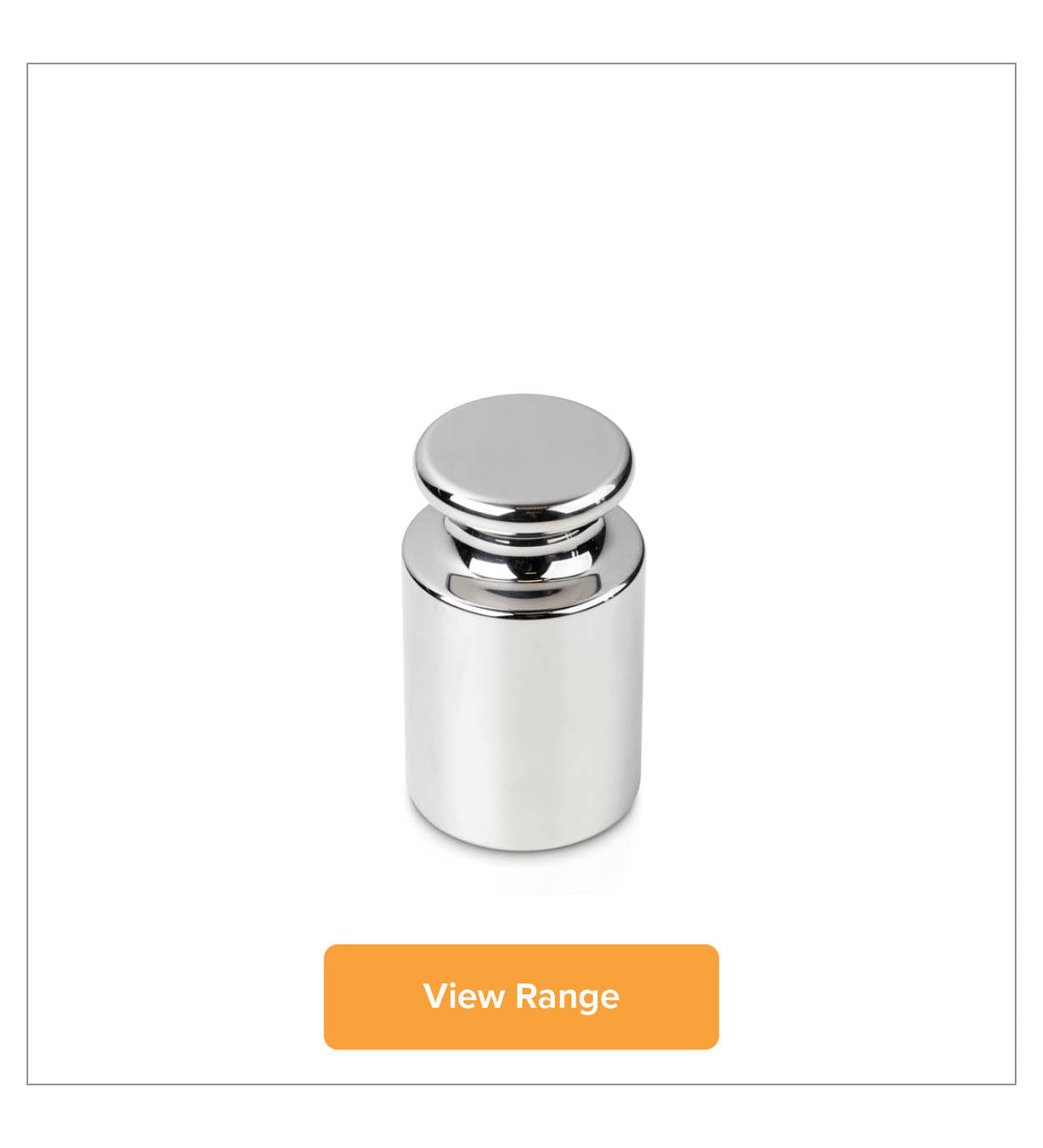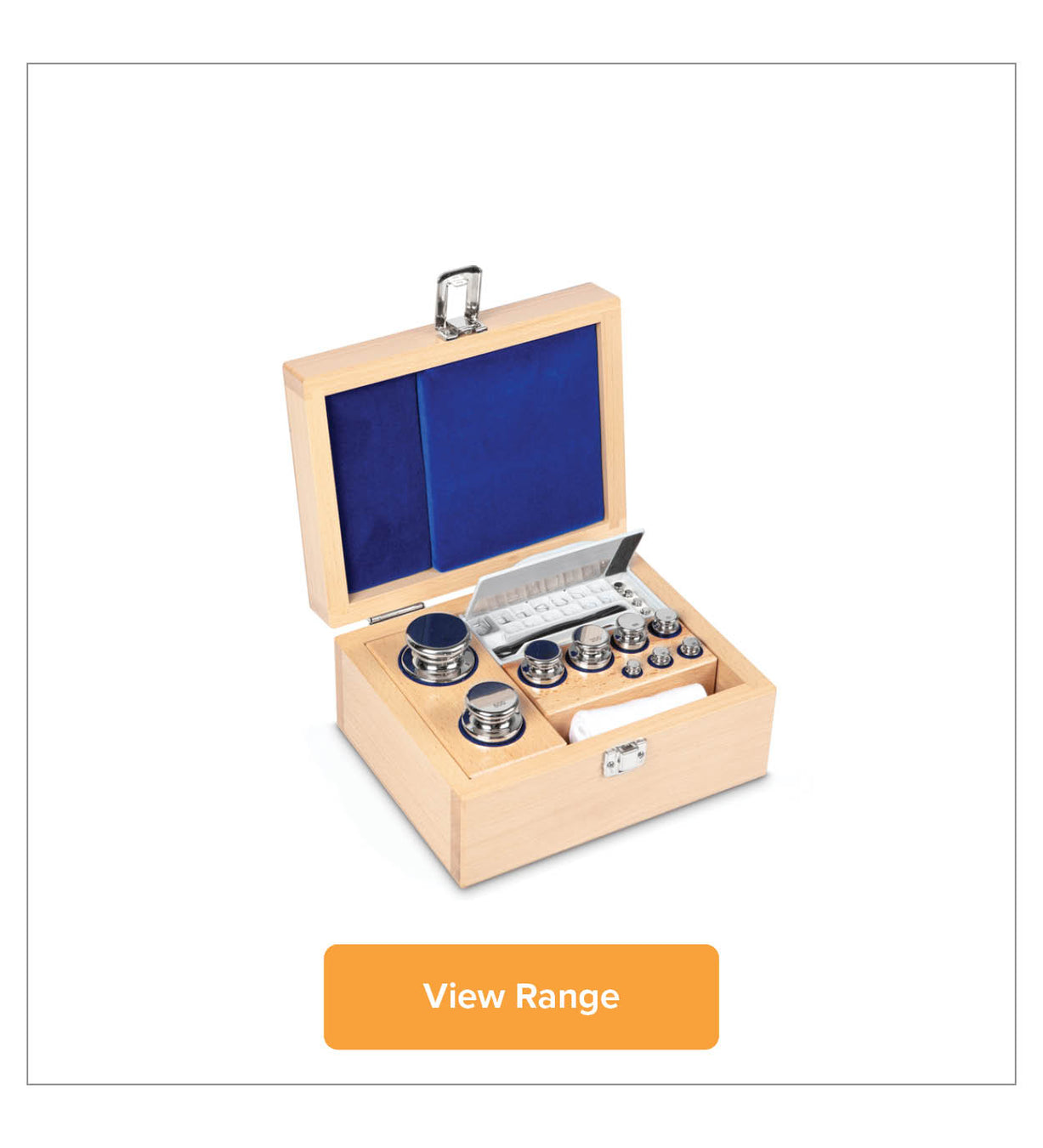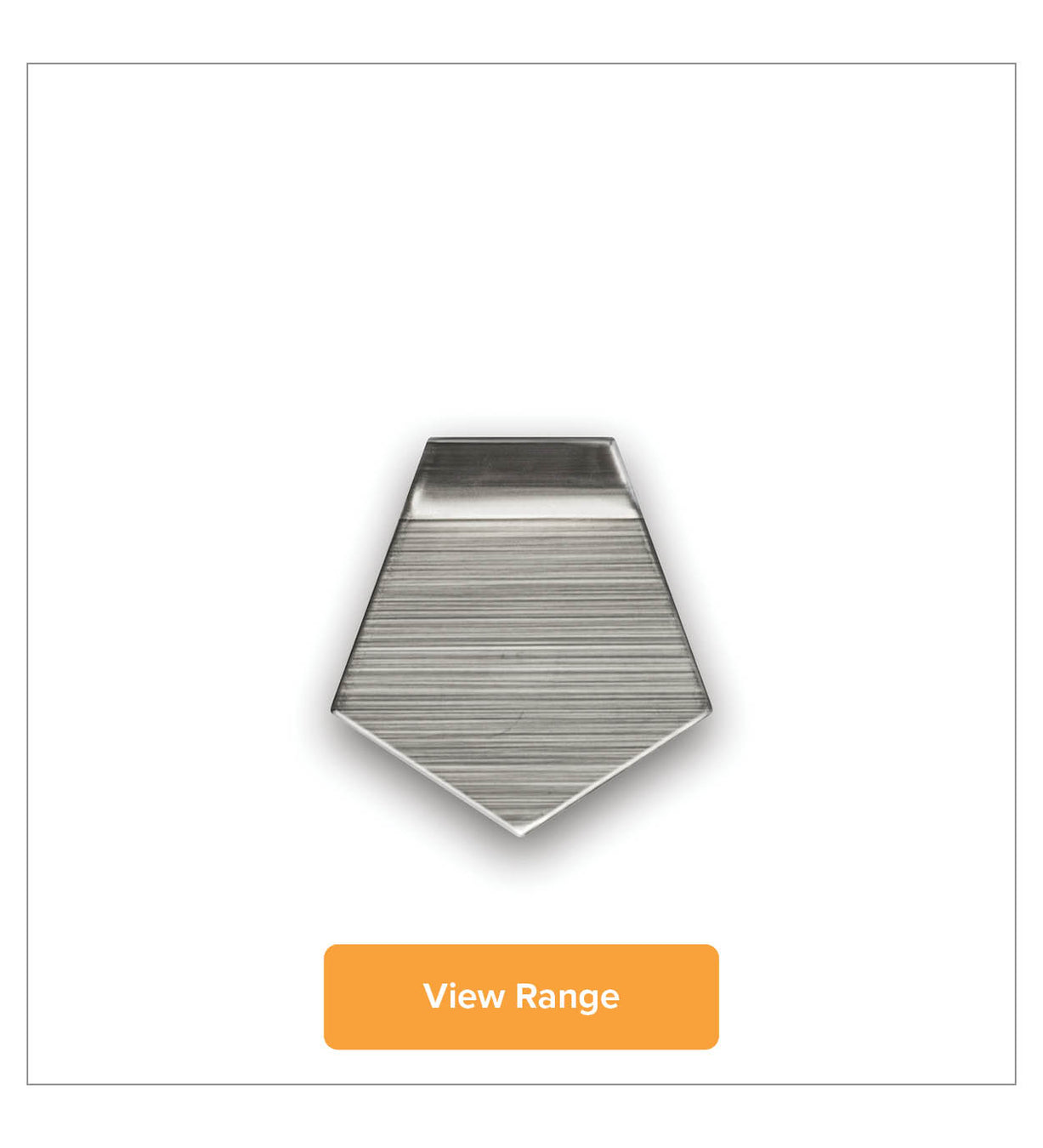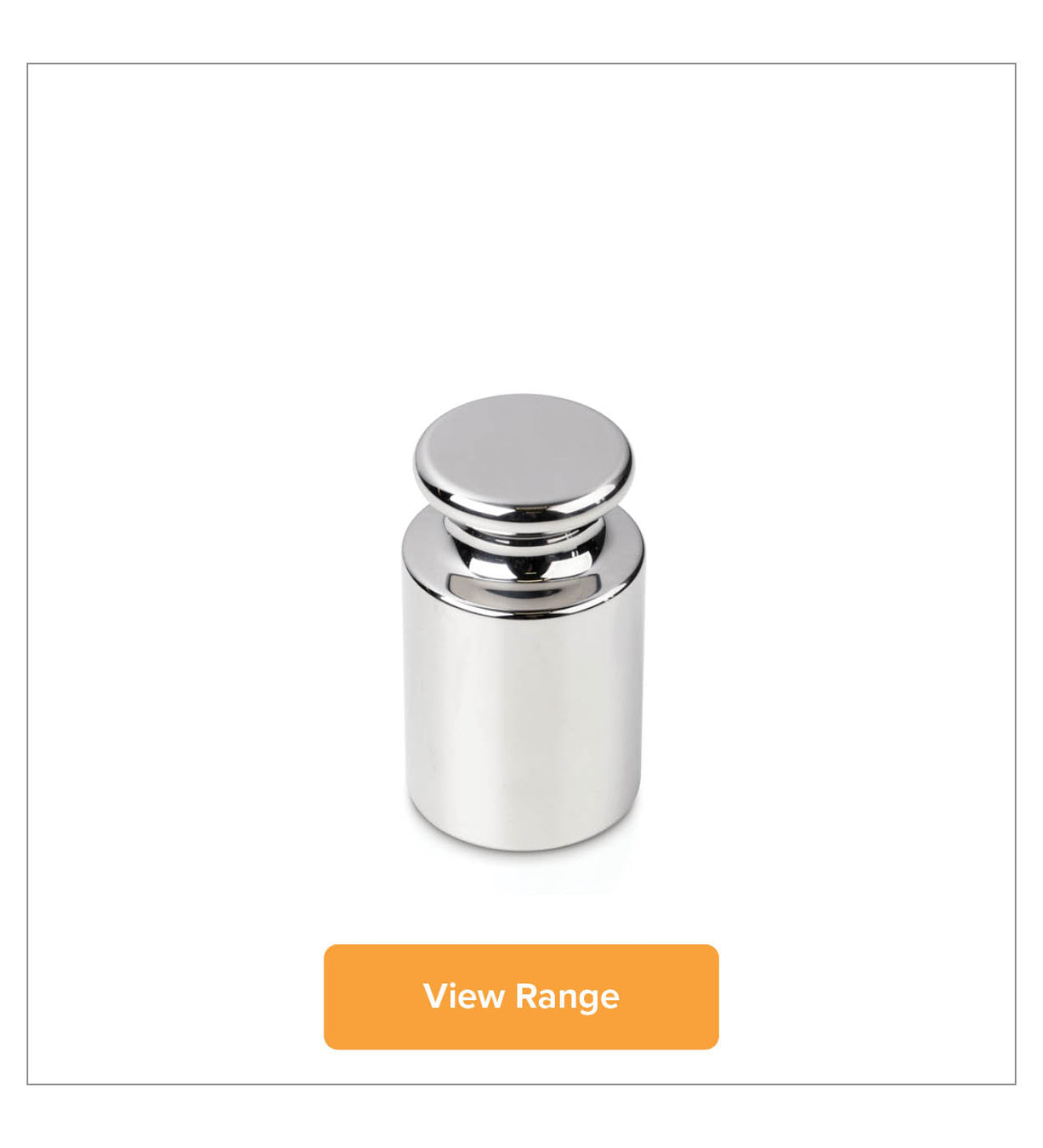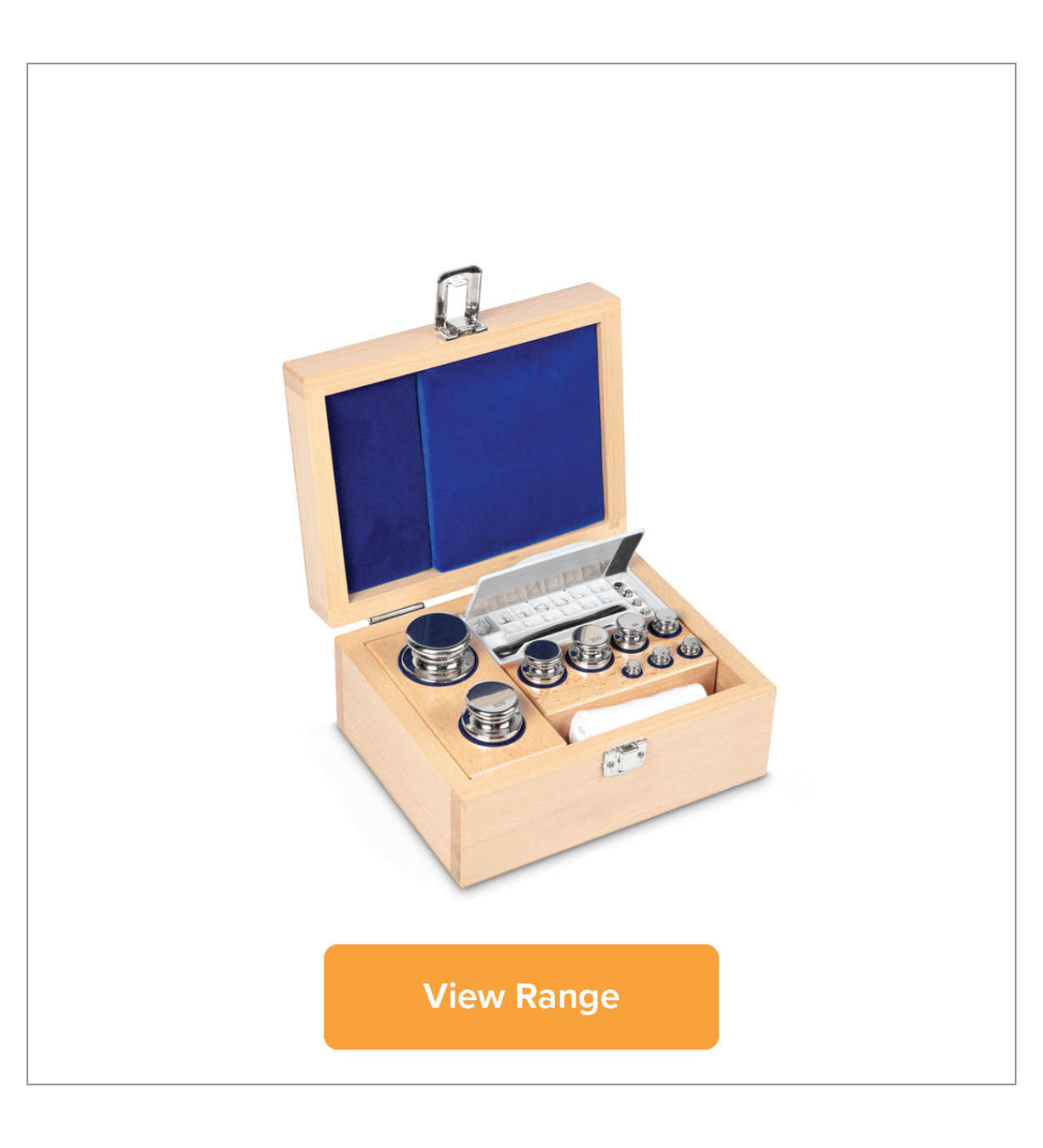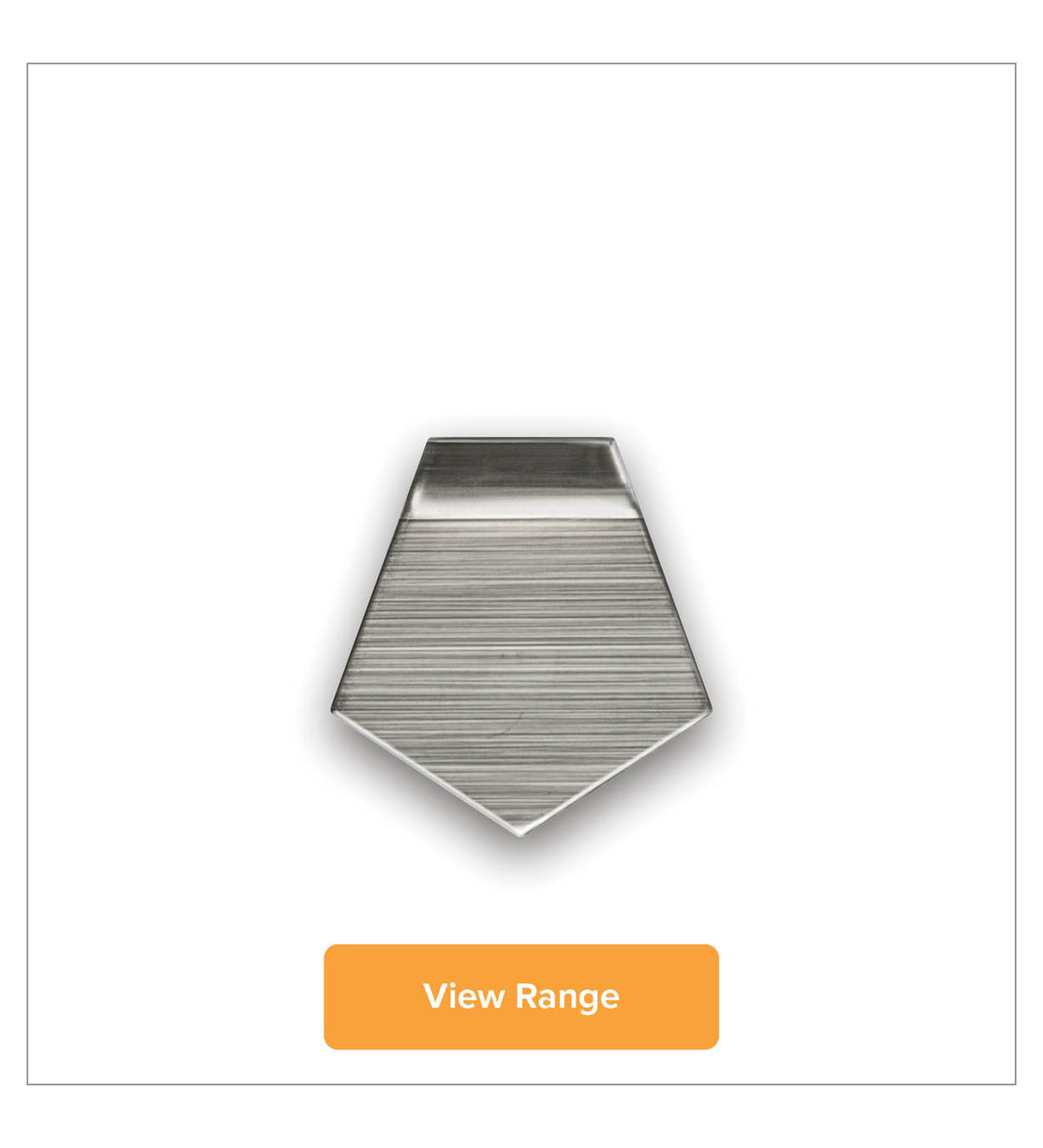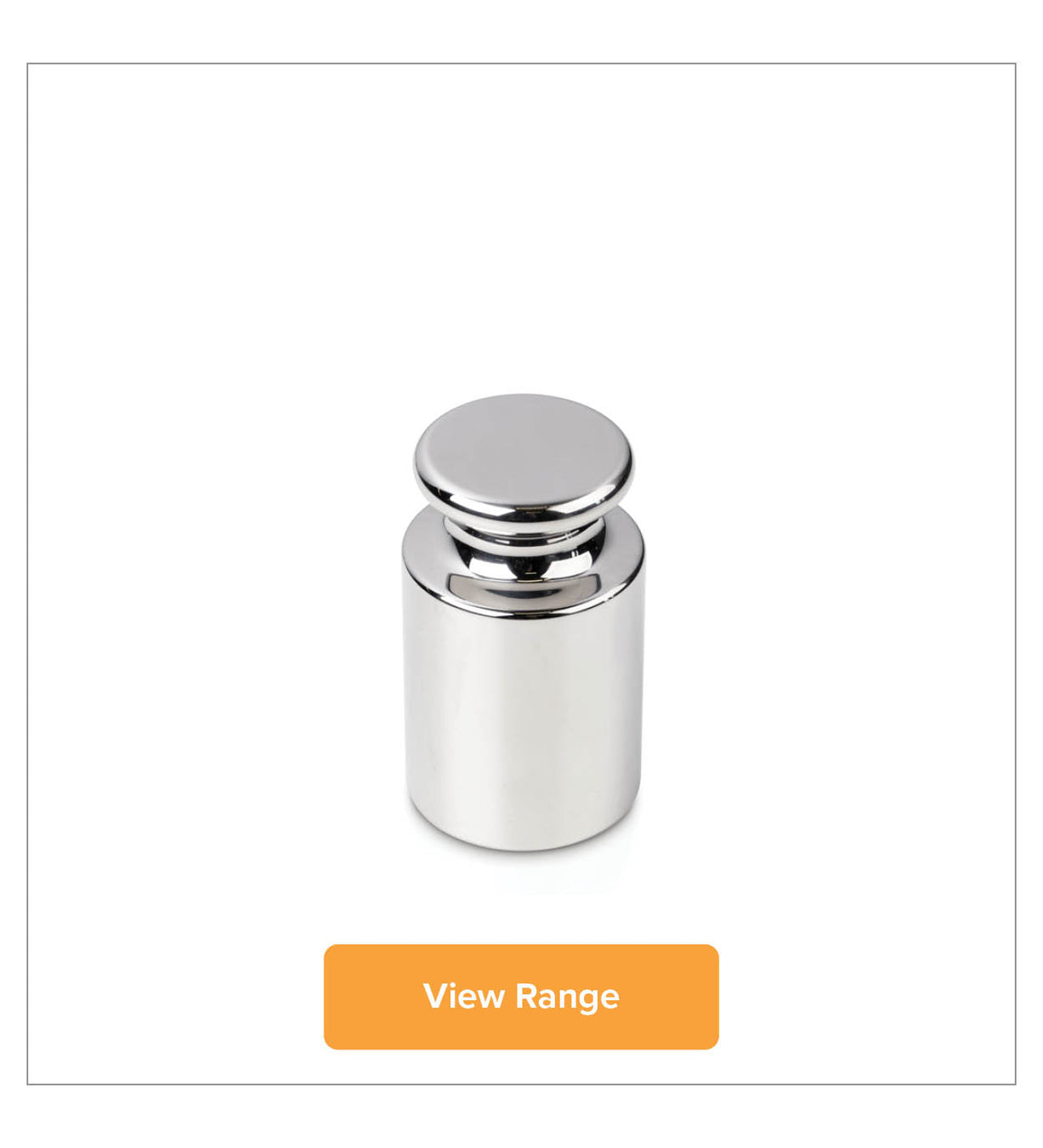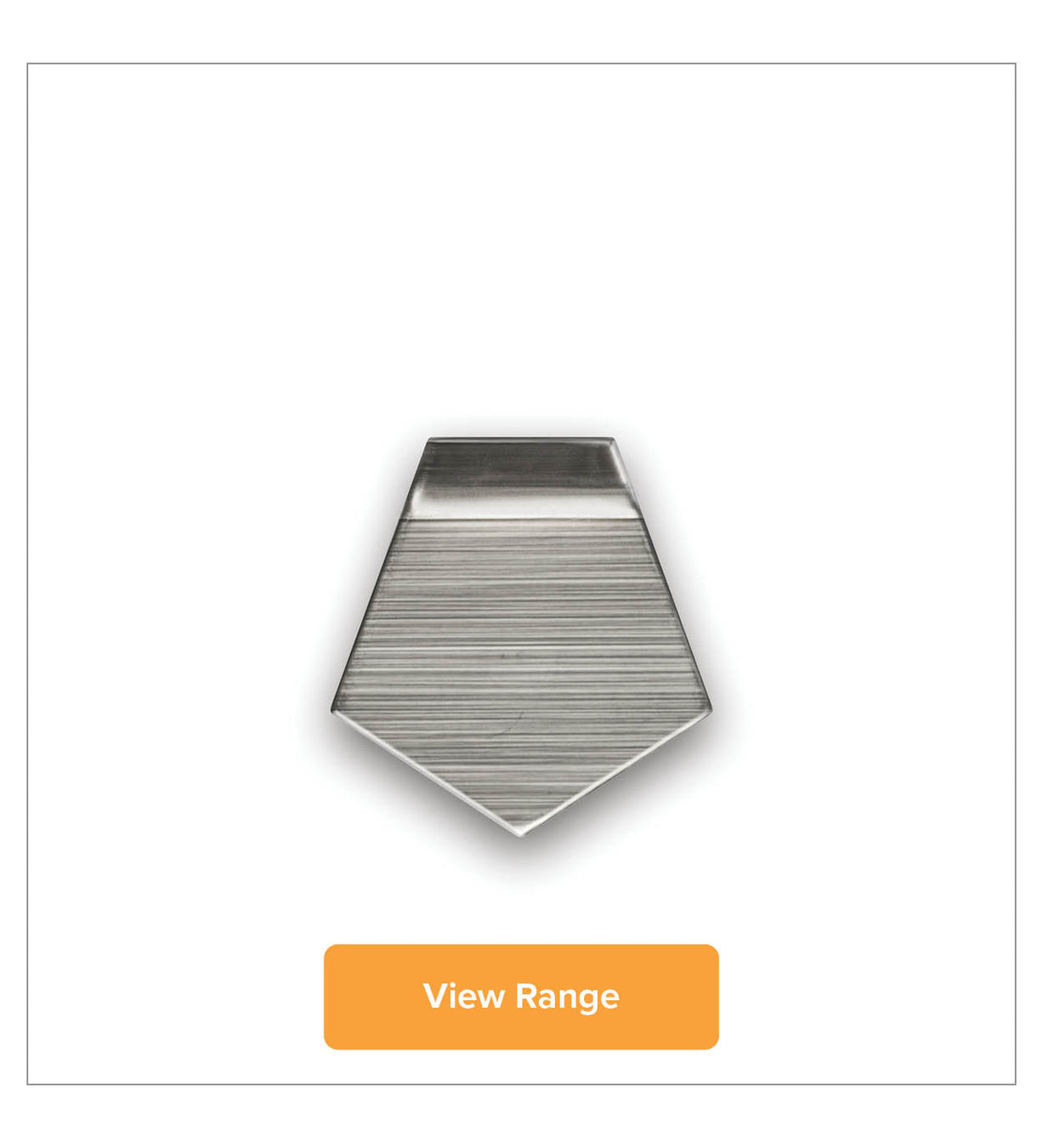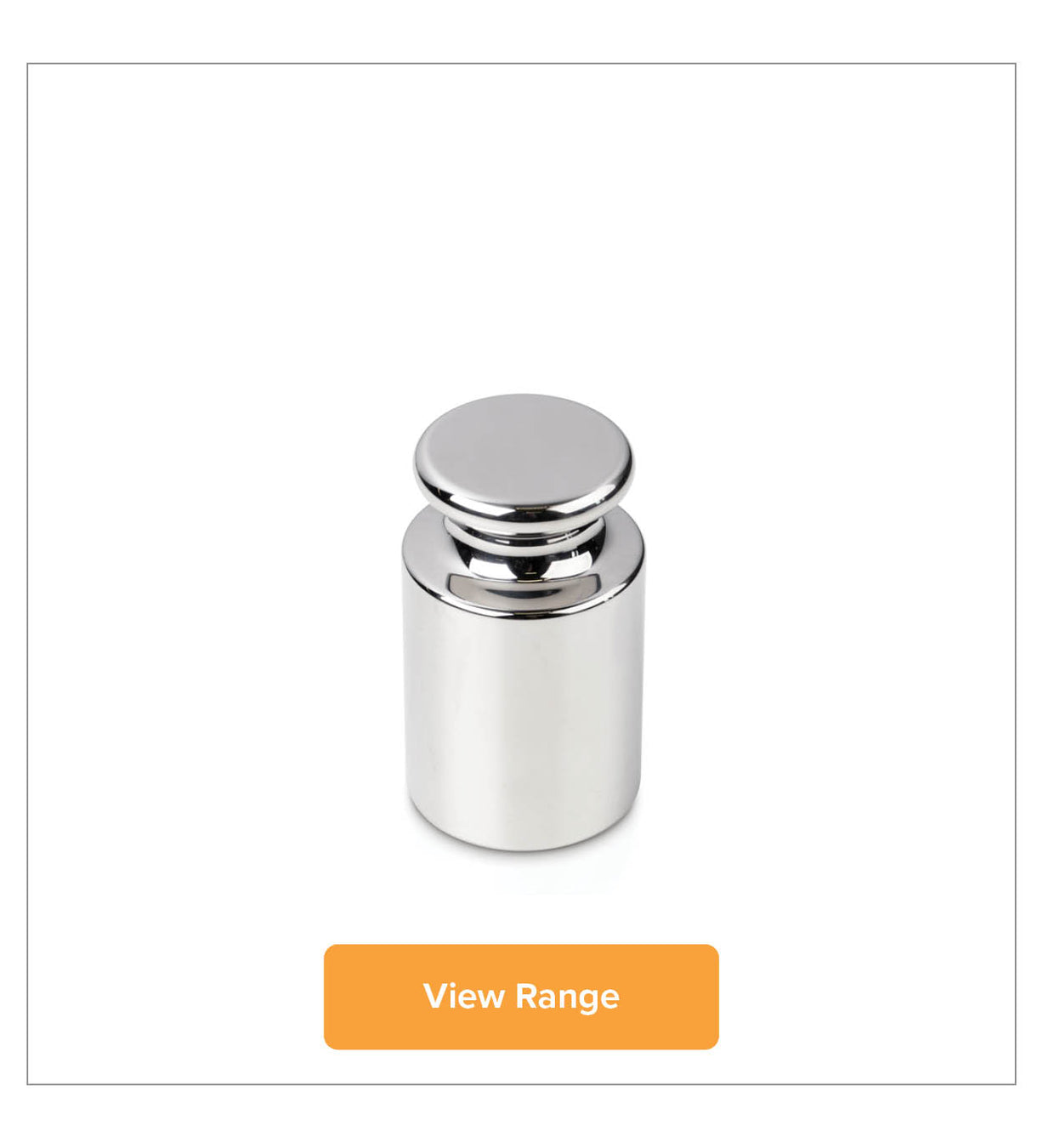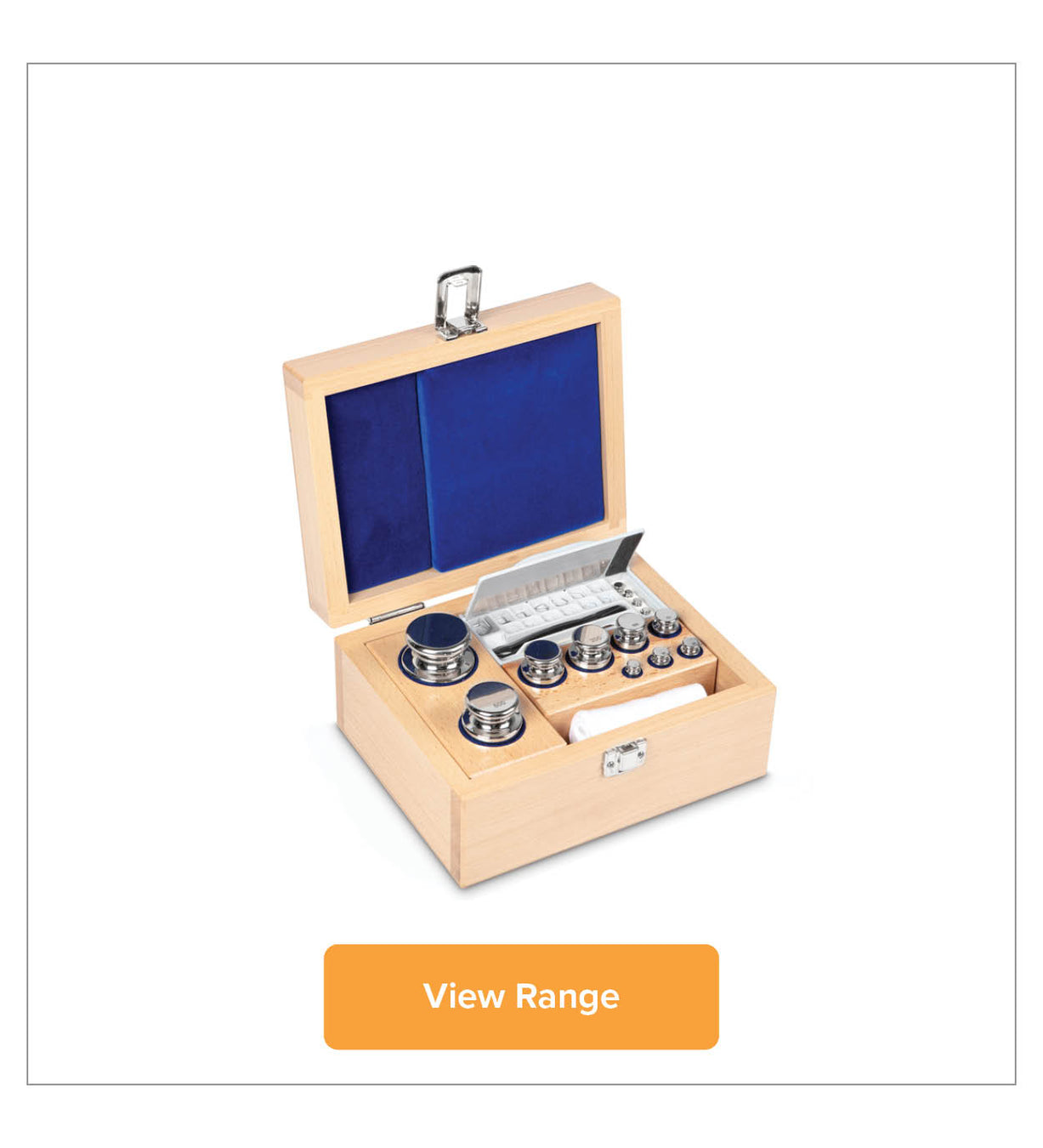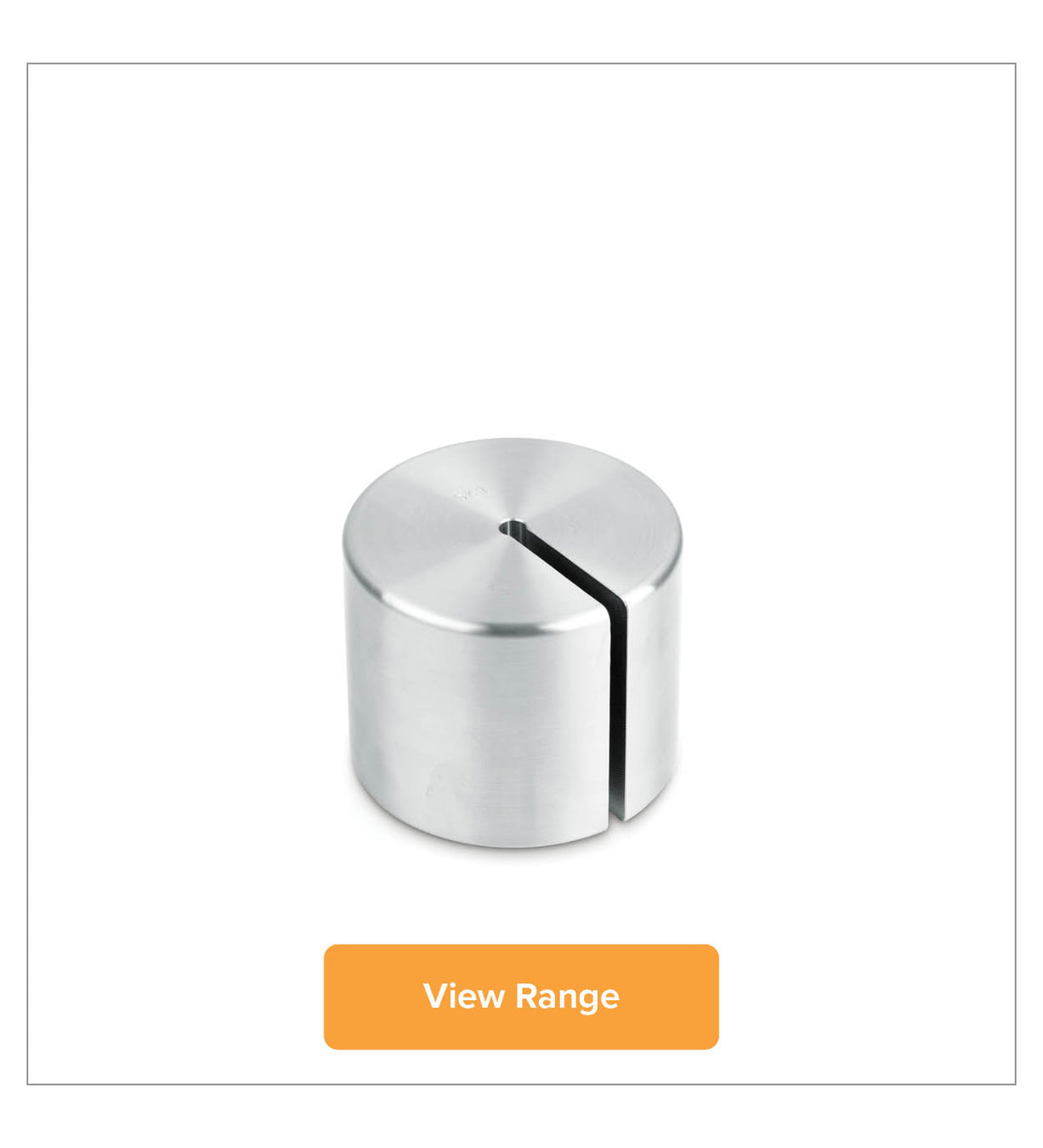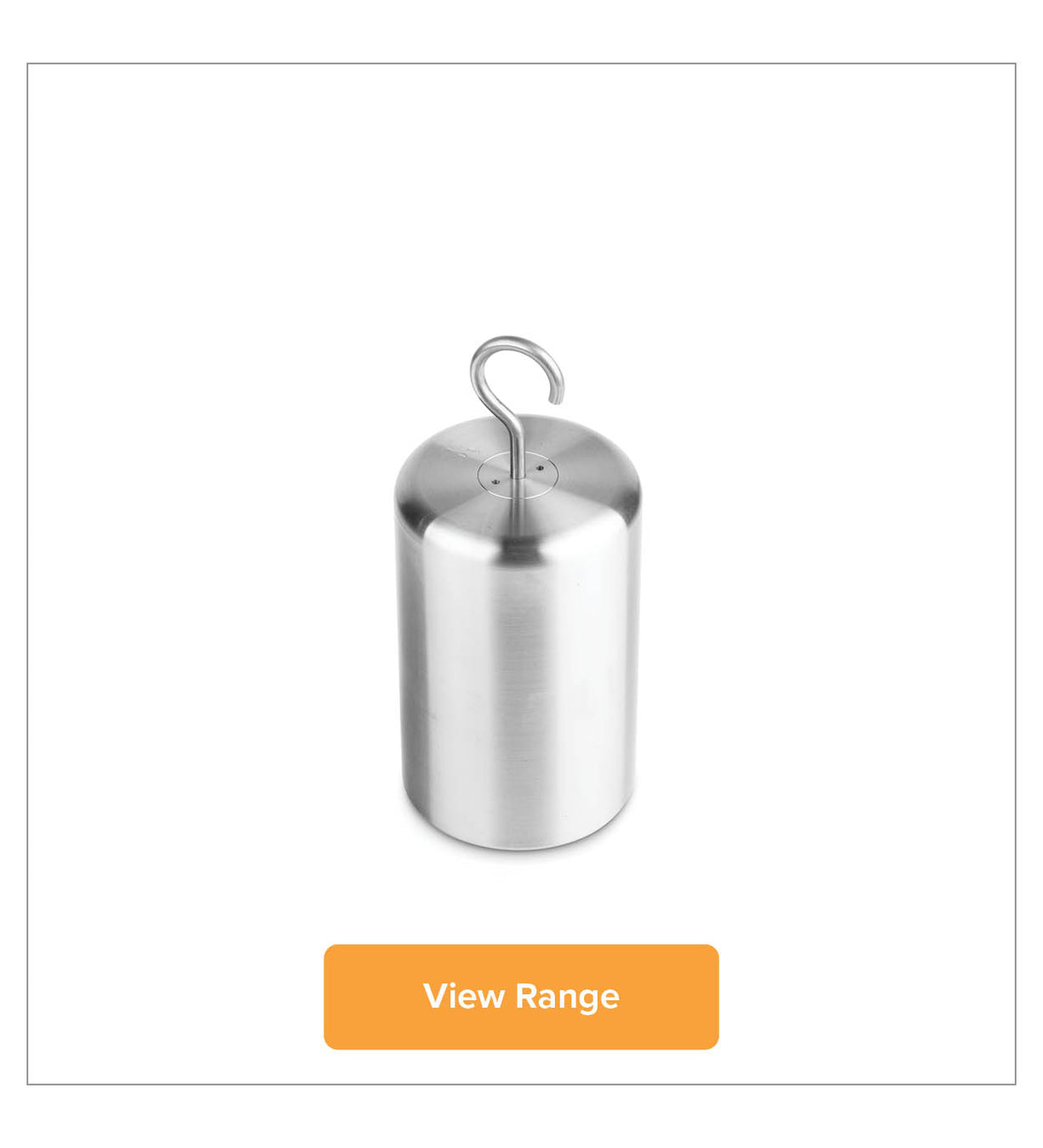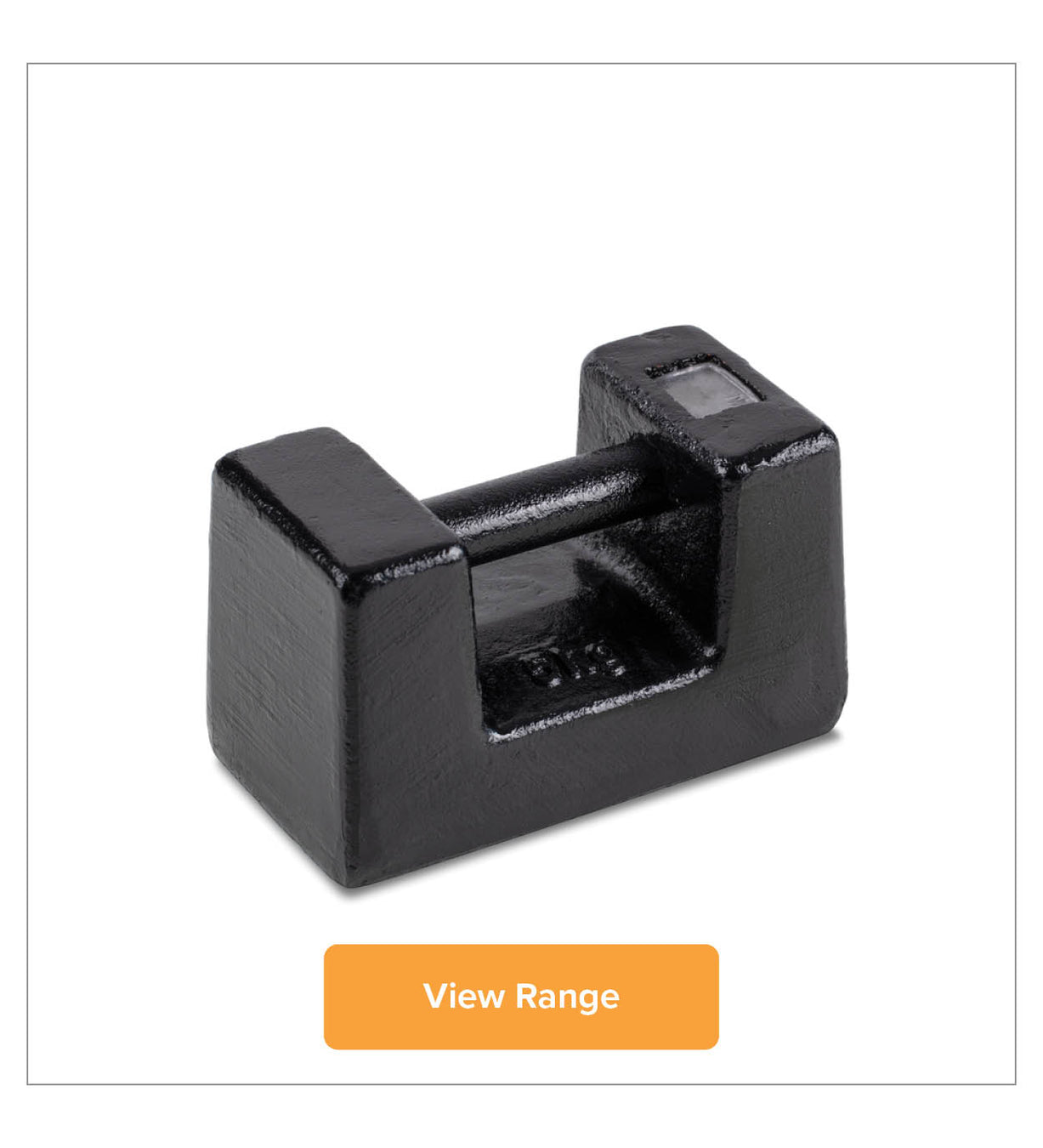Calibration Weights
Calibration Weights Sets
What are calibration weights?
Calibration Weights are used when calibrating weighing scales and balances to ensure consistent weighing performance and accuracy. Choose from our selection of test weights and weight sets ranging from 1g to 50kg in stainless steel and single cast iron block weights from 5kg to 50kg.
To guarantee your weighing results are accurate, it’s crucial to know the difference between our variety of test weights and understand which weight you should use for your balance. For your convenience, we’ve compiled a brief overview of the weights we offer, as well as additional information on how to clean and store your weights properly.
E1 Class Calibration Weights
The most precise test weights available. These weights should be used on balances with very fine resolutions, such as micro and analytical balances with resolutions finer than 0.0001 grams. They are most used in test and calibration metrology houses and within the chemical and pharmaceutical industries.
E2 Class Calibration Weights
Less precise test weights than the E1 Class. The tolerance is less than E1 class but still suitable for use on very fine resolutions, such as micro and analytical balances, with resolutions finer than 0.0001 grams. E2 Class test weights are most used in test, metrology, university and calibration houses also within the chemical and pharmaceutical laboratories.
F1 Class Test Weights
F1 weights are used for fine precision analytical and precision scales and balances with resolutions between 0.01g to 0.001g. These weights have a high degree of accuracy and are more cost effective than the E1 and E2 classes. Mainly used in laboratories, calibration houses and quality control areas.
F2 Class Calibration Weights
F2 weights are used for standard tolerance precision balances and scales. These weights have a standard degree of accuracy, but are more cost effective than the F1 class. Mainly used in laboratories, calibration houses and quality control areas.
M1 Class Test Weights
The most widely used test weight class on the market today. These weights are used to calibrate scales and balances where exact precision is not necessary, such as those that have a coarser resolution of 0.1g to 1g. All class III scales use these weights for reference and calibration.
How to Choose Calibration Weights
There are many different types of scale calibration weights that are used for different applications. They should be chosen with your scale’s capacity and readability in mind, as well as your budget.
For most accurate results, it’s recommended to purchase a set of calibration weights, ranging from your balance’s minimum weight all the way to its capacity. This way, you can be assured that your balance is accurate across the entire spectrum of samples you may need to weigh.
How to Clean Your Weights
Weights should be dusted routinely before use, using a clean, soft-haired brush. They should not be cleaned more extensively unless absolutely necessary. More extensive cleaning may adjust the weight, so before cleaning measure the weight and then again after cleaning to ensure it hasn’t gone out of tolerance.
How to Store Calibration Weights
Individual precision weights should be stored in individual wooden or plastic boxes and kept in a suitable cupboard to protect them from dust and atmospheric pollution. Sets of weights used regularly should be stored in a suitable sized wooden or plastic box with individual compartments for each weight. Weights should not be stored on shelves or racks without adequate protection from the environment.
Still have questions? Contact the Inscale team.

